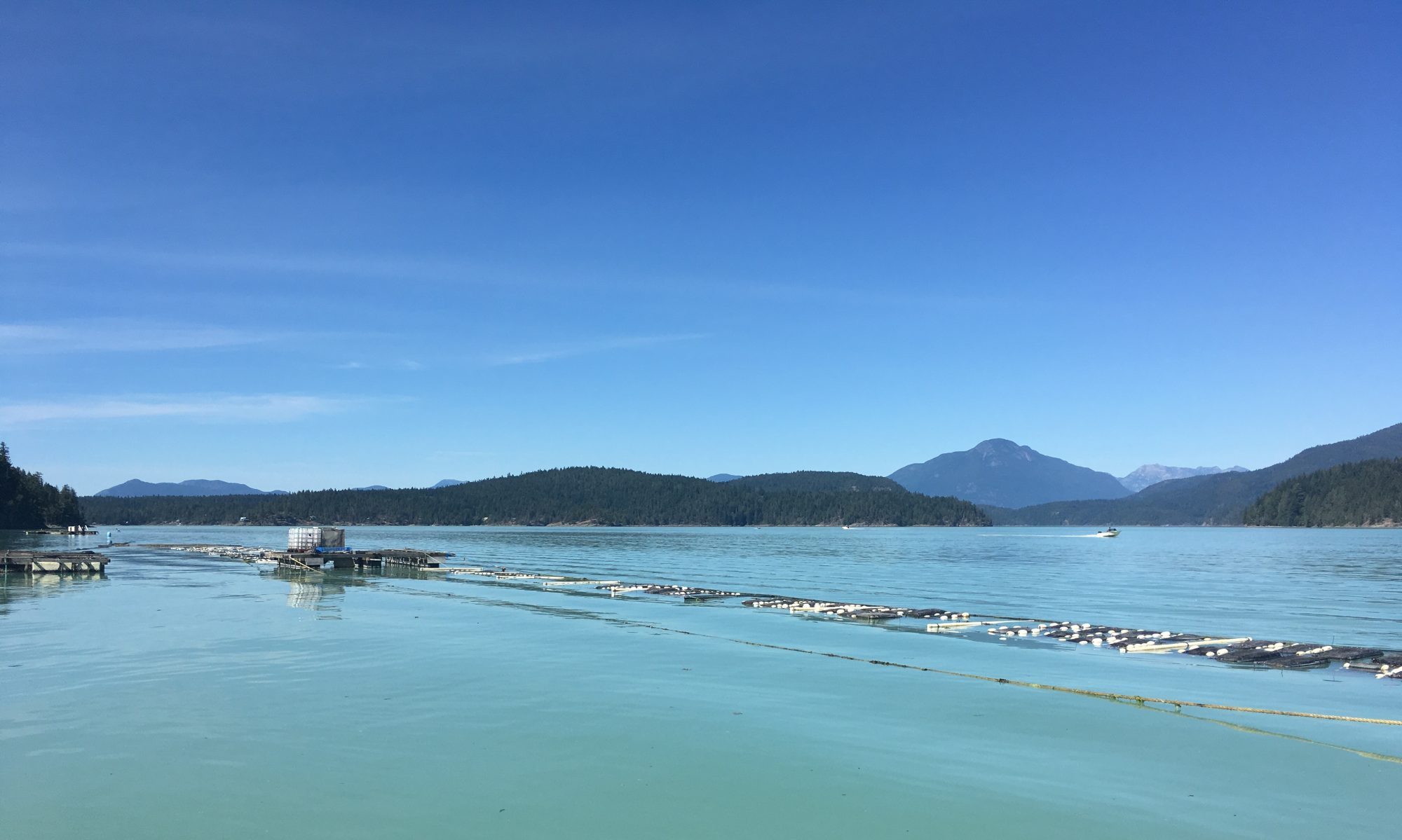Paradyse Blackwood (They/Them) | Postdoc
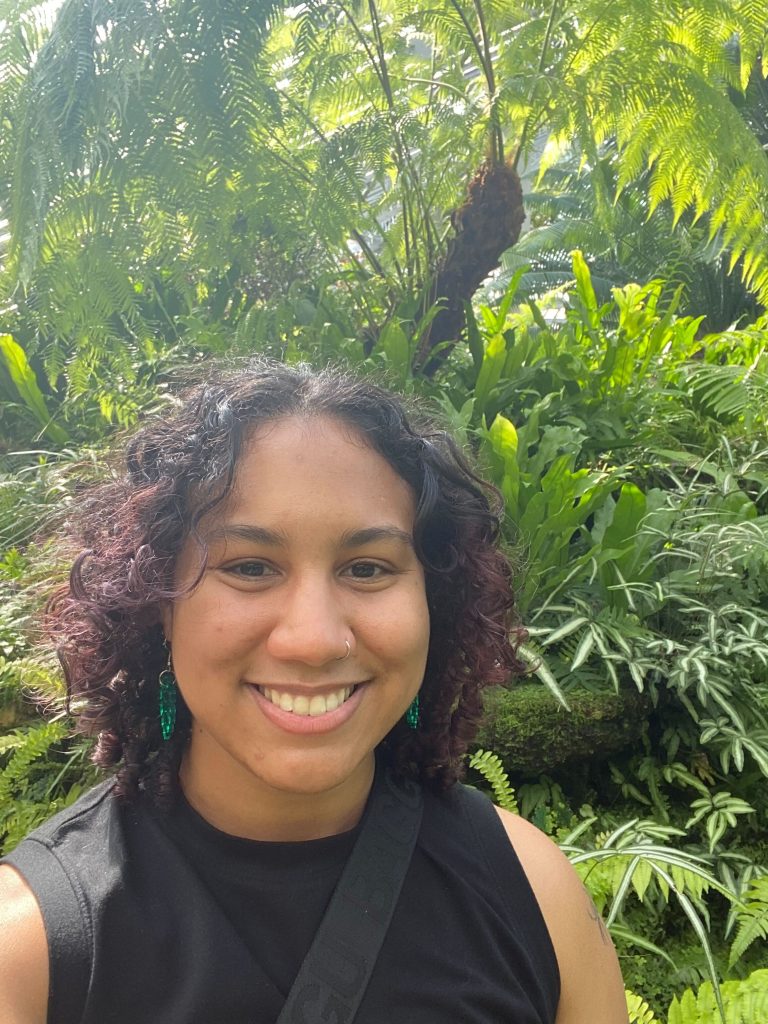
Paradyse is a disease ecologist and is a Postdoctoral Fellow in Marine Host-Parasite Dynamics with the Sentinels of Change Alliance. Paradyse is interested in how anthropogenic stress (e.g., climate change, salinity) influences host-parasite interactions. At UBC, they are using field and lab experiments to explore how climate change and environmental variation are connected in determining parasitic infection dynamics in intertidal marine invertebrates in the Salish Sea. Outside of the lab, Paradyse enjoys nature walks, reading, or hanging at cafes.
Tara Brudar (She/Her) | BSc Student, Ocean Acidification Research and Outreach Assistant

I’m an upper-level undergraduate student studying Natural Resources Conservation at UBC’s Faculty of Forestry! In my role at the Harley Lab, I work alongside graduate and faculty members to support laboratory research determining the effects of ocean acidification on BC shellfish, including vulnerability to additional threats like heatwaves and predators. I am also involved in communication and outreach on the topic of ocean acidification in BC, focusing on knowledge dissemination through social media, presentations/seminars, and collaborations with local non-profits. In my spare time, you’re most likely to find me skiing at the local mountains or outside with my camera!
Connor Church (He/Him) | BSc Honours student

Connor is a 4th year undergraduate student studying Biology. He is interested in how climate change impacts marine ecology and is a big fan of the rocky intertidal zone. His Honours thesis focuses on the influence of changing salinity on prey choice and sensory detection in the Hairy Hermit Crab Pagurus hirsutiusculus. He also enjoys hiking, comic books, and inaturalist.
Naomi Fournier Gomel (She/Her) | MSc Student
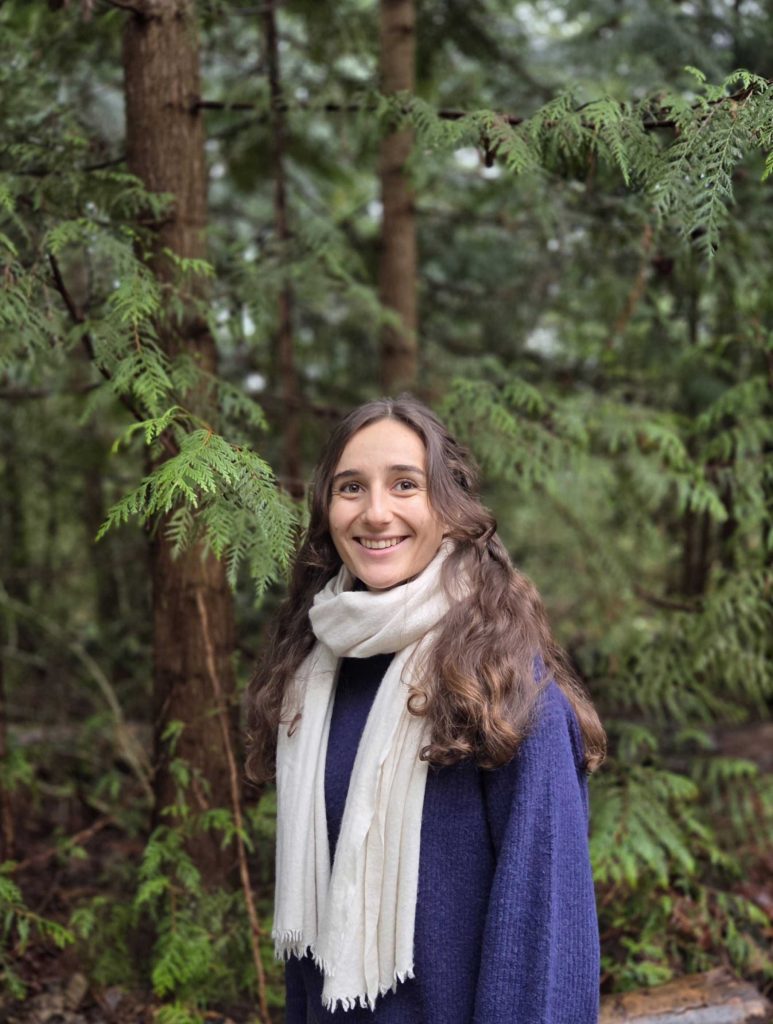
I love asking myself questions about nature and trying to find answers, which is why I work in ecological research. Currently, I am a graduate student doing a 5-month internship at The Harley Lab. Before this, I studied Oceanography at the University of Science and Technology of Hanoi (USTH) in Vietnam, as part of a double Master’s degree with the School of Water and Environmental Engineering in Strasbourg (ENGEES) in France. Here in Vancouver, I am contributing to a chapter of Fiona Beaty’s PhD thesis by continuing a meta-analysis on the effects of warming and ocean acidification, both individually and in combination. When I’m not working in the lab or in the field, you can find me exploring nature, visiting museums or playing badminton.
Georgia Hall (She/Her) | MSc Student
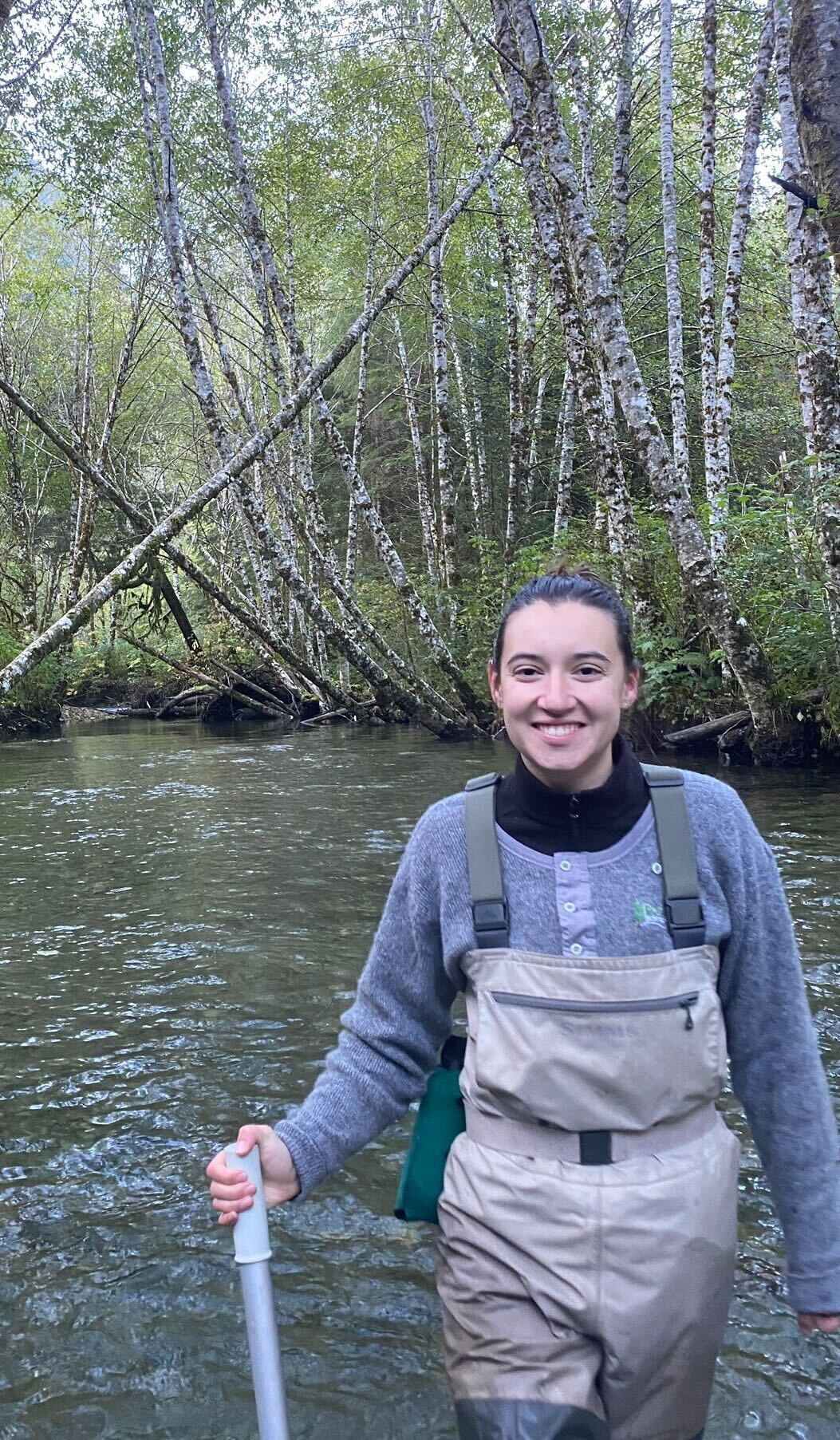
Georgia is a forestry grad who recently did a 180⁰ and ended up in the ocean. While she now splits her down time between the forests and the beach, she is excited to be studying the marine side of things for a change. Her research examines the effects of ocean acidification on Pacific oysters and bay mussels. More specifically, whether a more acidic ocean will make these shellfish more susceptible to predation and atmospheric heatwaves. She hopes to better understand the complex interactions between changing ocean chemistry, predator-prey dynamics, and a warming climate to help inform resource managers and the aquaculture industry. In her spare time, you can find her curled up with a book, baking, or somewhere out in the West Coast rain.
Email: g.hall@zoology.ubc.ca
Christopher Harley (He/Him) | PI
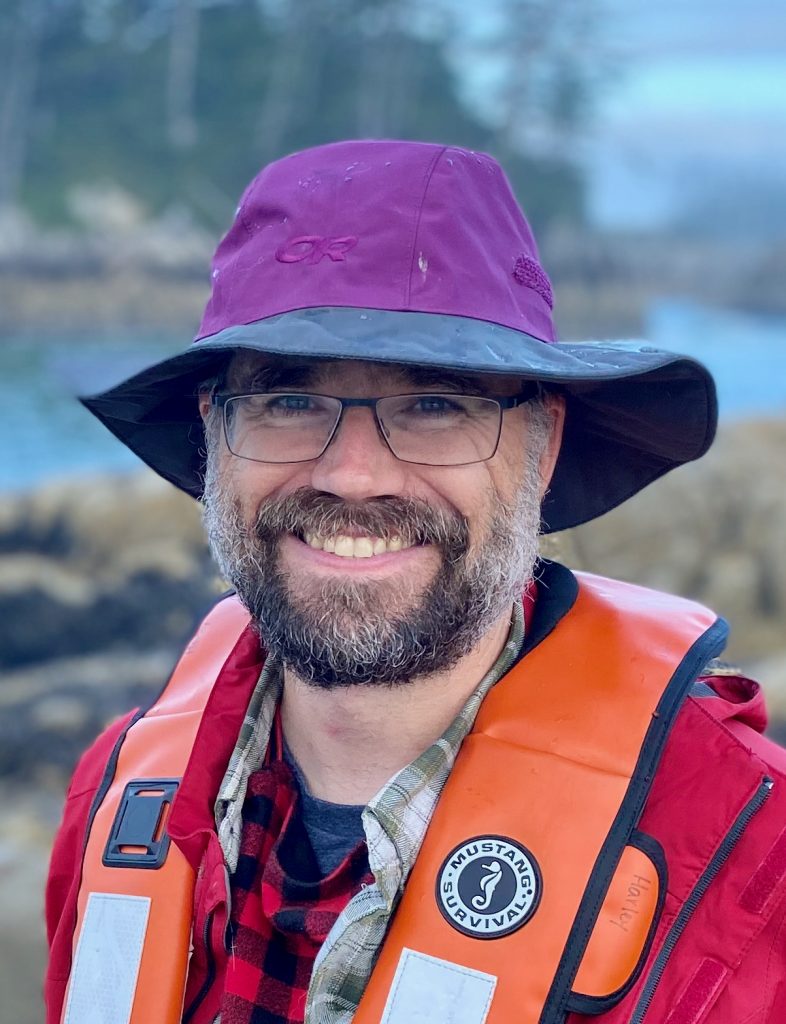
I am a community ecologist interested in how and why coastal marine ecosystems vary in space and time. Much of my research focuses on the effects of climate change stressors – temperature, ocean acidification, altered salinity – on the plants and animals that live on rocky shores, and how interactions between species determine how ecosystems respond to environmental change. I am particularly interested in the ecological implications of complex patterns of environmental variation, including combined stressor scenarios and rare extremes like heatwaves and cold snaps. Integrating ecologically relevant patterns of change with interactions like keystone predation and facilitation by foundation species helps us better understand patterns of biodiversity in the nearshore environment and beyond. In our research, my students and I combine manipulative experiments in the lab and field with long-term observations and historical resurveys. Our work also touches on invasive species impacts, ecophysiology, biogeography, and the natural history of the weird and wonderful fauna and flora of the intertidal zone.
Sierra (CJ) Jensen (She/Her) | 2024 USRA Undergraduate Researcher & Lab Volunteer
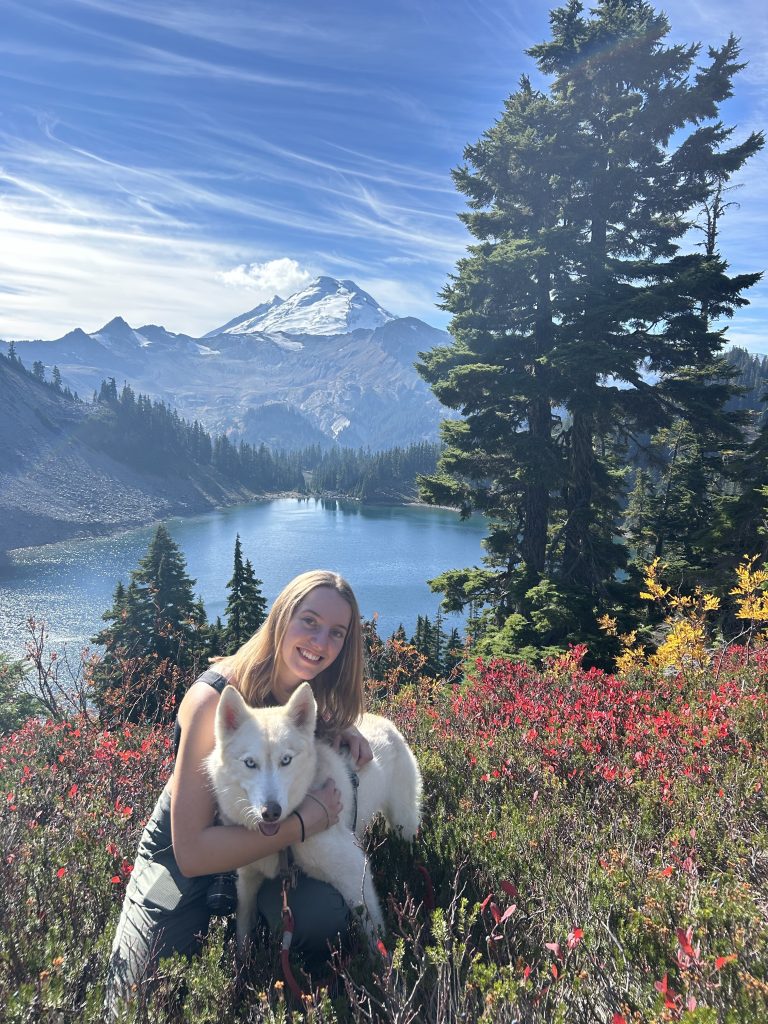
Sierra joined the lab as an NSERC USRA Undergraduate Researcher in the summer of 2024, where she investigated the interaction between the common PNW sea star, Pisaster ochraceus, and the invasive Pacific oyster. Her work aimed to improve our understanding of species dynamics and forecast changes in coastal ecosystems by considering the potential regulation of Pacific oyster expansion through predation by Pisaster.
Sierra is now a recently graduated UBC Biology alumna with a passion for marine conservation. Since graduating, she has remained involved in the lab as a volunteer, providing general support for ongoing research. Beyond the lab, she is deeply interested in the conservation of marine biodiversity and the ecological impacts of invasive species. When she’s not on campus, you’ll find her exploring tide pools, hiking along the coast, or giving back to the community through volunteer work.
Sophie Johnston | PhD Student
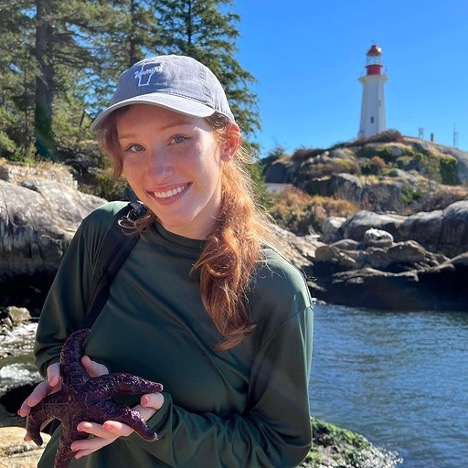
Sophie was inspired by the complexity of marine systems while writing her undergraduate thesis on albatross species interactions along a gradient of ocean productivity. Her current research investigates how mutualistic symbioses in the intertidal zone respond to acute and long-term thermal stress; she primarily studies the response of sea anemones and their algal endosymbionts to simulated heatwaves. She is also interested in the interacting effects of ocean acidification and extreme temperature stress on coastal community dynamics. When she’s not forgetting to add a + sign to a ggplot object, she loves the same things most Ontario-ers attracted to the west coast do: hiking, swimming, reading, baking, and gardening.
Kevin C. K. Ma (He/Him) | Postdoc
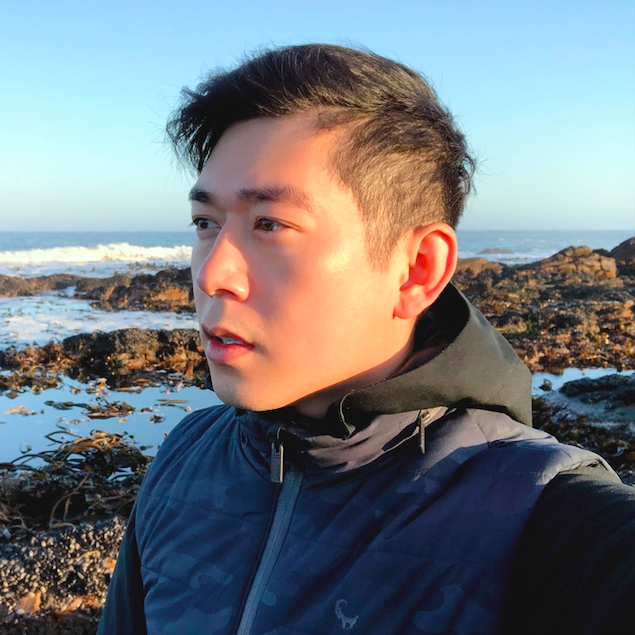
Kevin is passionate about the ecology of intertidal habitats and is excited to collaborate with Harley, Gehman, and the Black and White Tile team at the Hakai Institute. His work focuses on uncovering the patterns and processes that shape intertidal biodiversity in the Salish Sea, with a particular interest in understanding how this system responds to the effects of climate change.
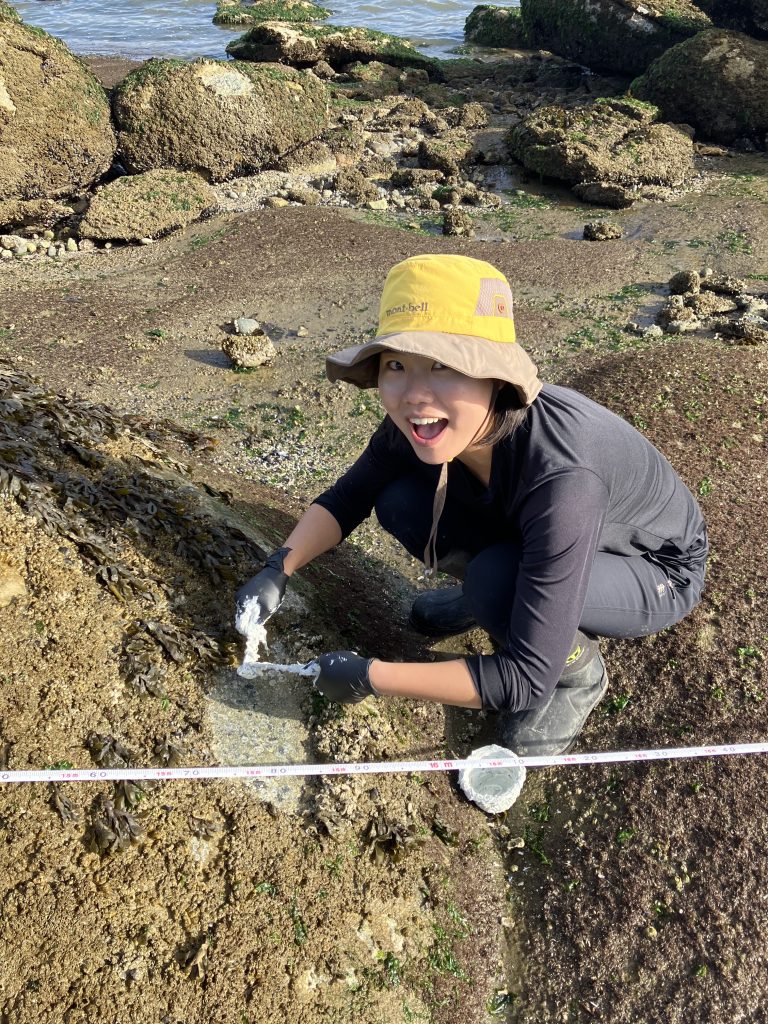
I’m curious about how marine ecosystems function under climate change and human activities.
Working along British Columbia’s stunning coasts, I feel incredibly lucky to align my passion with my work. My research focuses on foundation species, like barnacles and seaweeds, and key interactions, such as grazing between snails and algae in rocky intertidal zones. While many study the impacts of heatwaves, I’m intrigued by the opposite extreme—how cold snaps shape intertidal species. Low temperatures play a critical role in species distributions, often setting the leading edge for migrations from lower latitudes. I’m also interested in monitoring long-term ecosystem changes to predict future trends and support conservation efforts.
After work, I enjoy chatting, reading, writing, watching movies, listening to music, and working out. My ultimate goal isn’t directly related to science but to be healthy while maintaining a kind and grateful attitude toward the world and to become strong enough to complete a triathlon.
email: sjpark@zoology.ubc.ca
Natalie Rivlin | PhD Student
Ngọc Anh Vũ | MSc Student
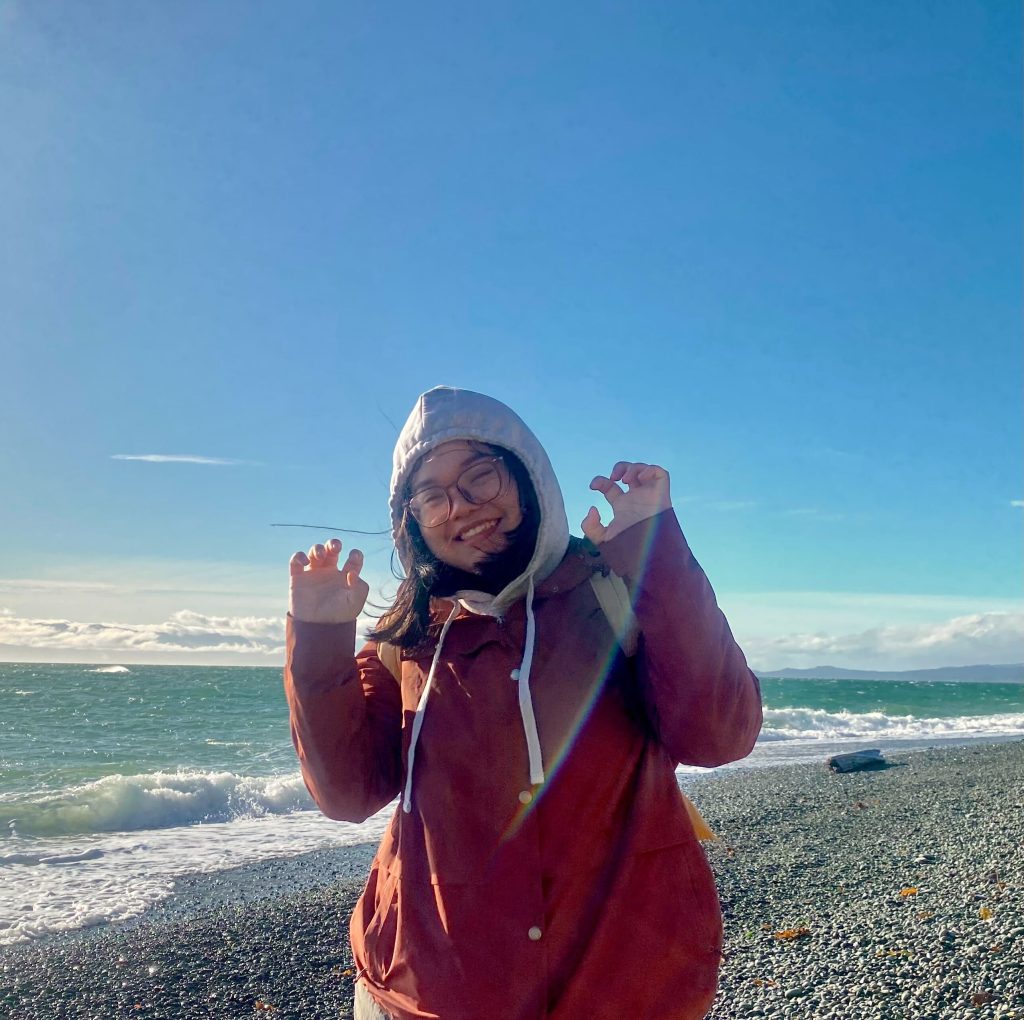
I am a masters visiting student from Vietnam National University, Hanoi, Vietnam. Despite being born and raised in Hanoi, a modern city in the plain, I have a high curiosity about marine ecology, especially the impacts of extreme events, such as marine heatwaves, on marine organisms. I have been working with copepods, a micrometer tiny zooplankton, since my second year undergraduate and desire to do research on higher levels like communities and ecosystems. In my spare time, you can see me nowhere as I can spend all day lying on my bed, reading, and watching nonsensical videos, or sometimes you can find me wandering around on my lovely motorbike in mountainous or coastal areas with no specific destination.
